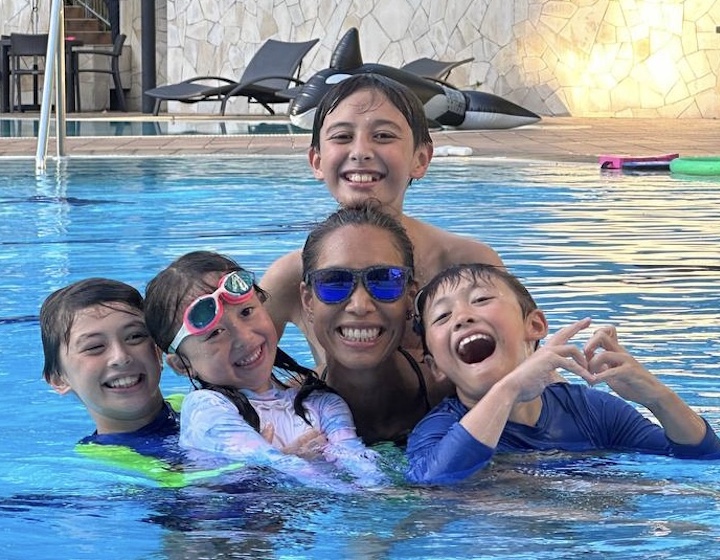
 Post Category - ParentingParenting - Post Category - Older KidsOlder Kids
Post Category - ParentingParenting - Post Category - Older KidsOlder KidsFour-time Olympian swimmer Joscelin Yeo talks about being an introvert, suffering from depression due to competition stress and why she pushes her kids out of their comfort zone.
Our That Mama of the month is Joscelin Yeo, a legend in the history of competitive swimming in Singapore, former Nominated Member of Parliament, and mum to three boys and a girl. Joscelin made her debut in competitive swimming at the age of 11 and went on to become a four-time Olympian who also won 40 gold medals in the SEA Games during her 17-year swimming career. In our interview with Joscelin who is recently divorced, she opens up about the mental and physical stamina and motivation needed to compete on the world stage and the toll it took on her when she later battled severe depression and self-harm. Joscelin talks about her parenting philosophy, why she doesn’t believe grades determine success and how she focuses on empowering her kids with resilience through sports. We love how she nurtures independence skills through her Into The Wild wilderness camps for children as well as in her own kids – her 4-year-old starred on Singapore’s reality TV show “Old Enough” and was challenged to go to the shops on his own – while Joscelin consciously pushes her kids out of their comfort zone through new challenges. She ensures they bear the consequence for their own actions saying, “If they forget to bring something, I’m not turning around to get it. They face that consequence on their own.” Read on for Joscelin Yeo’s honest bare-all interview!
Read our past That Mama interviews here
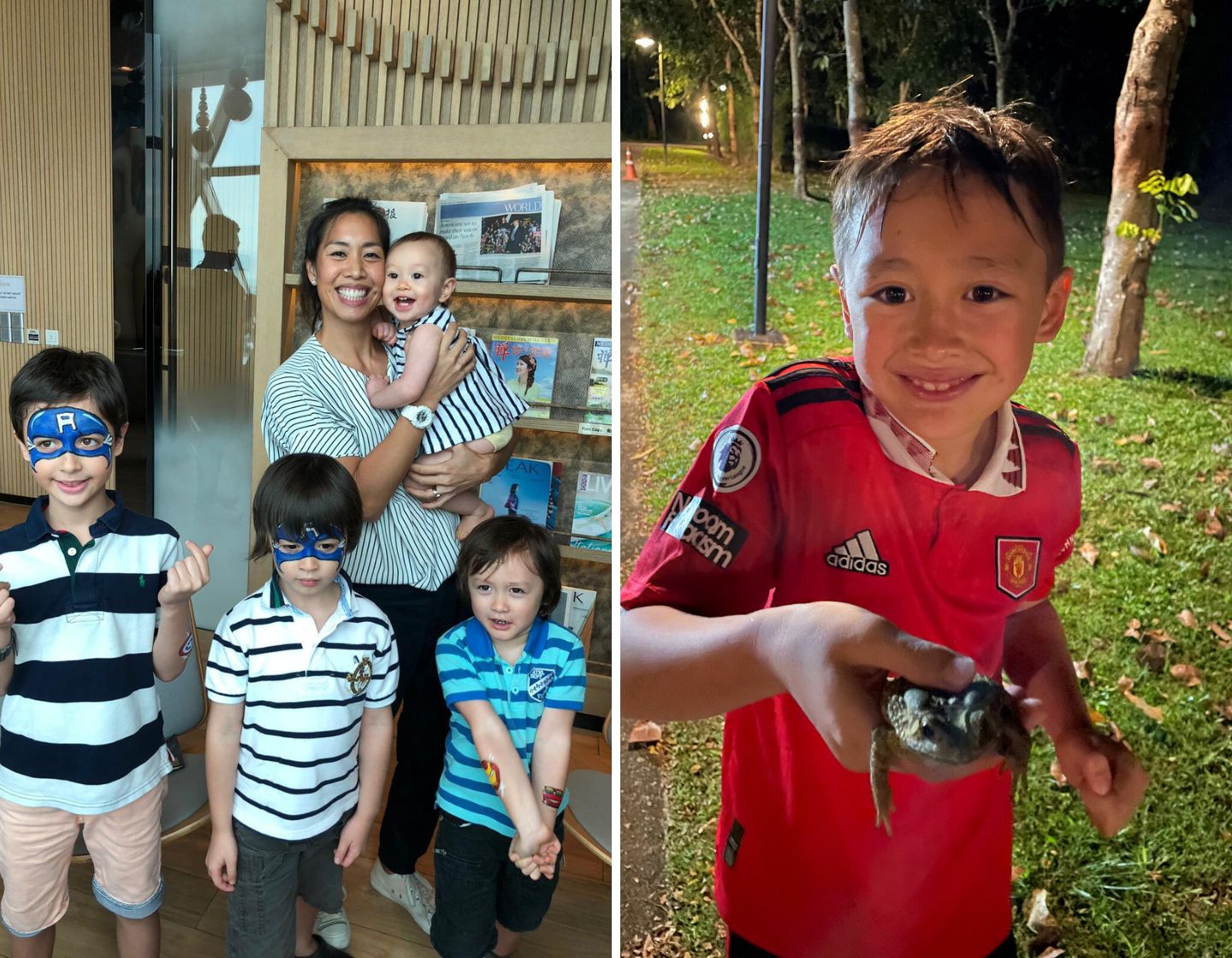
Can you tell us a little about yourself and your family?
I’m a mum to four kids. Sean, 12, is the sweetest boy. He’s really good at looking after little kids, is willing to try just about anything; food, activity or otherwise, and is a very positive and happy boy. David, 10, is very naturally gifted at sports, and is a very determined boy. When he was two, he stood in front of a kids’ basketball hoop trying to throw the ball in for about 45 minutes while I was nursing his younger brother. He’s the only 2-year-old I know so far that has that level of determination. Michael is 8. He’s built like a tank and has had muscles from birth. He has the same dimples I do and is always giggling. He is super smart, super creative and can build anything he envisions using Lego. He loves parkour and rugby. Sarah will be 6 this year. She is super girly, but don’t mistake that for being anything “weak”. She can totally hold her own and stand up for herself. She is nicknamed “Miss Congeniality” in school because she is super friendly and can make almost anyone feel comfortable. The teachers send all the new kids who have separation anxiety to her and she helps assimilate them into school life.
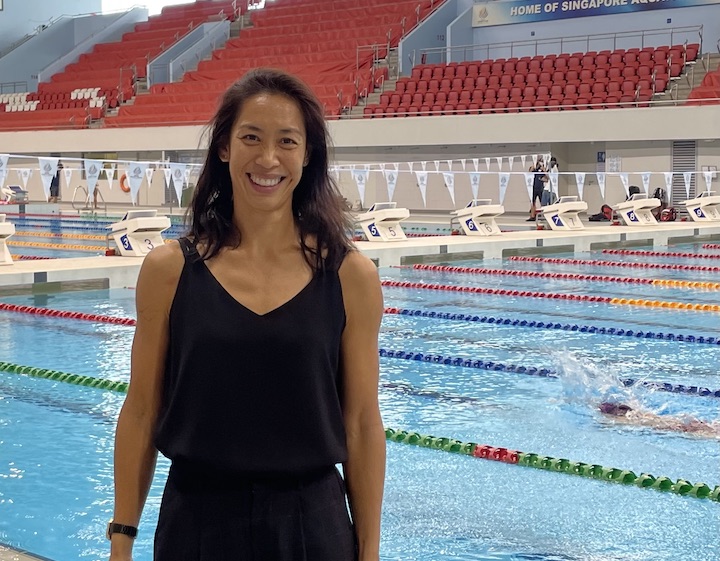
Tell us about your career pre and post-kids.
I was a semi-professional swimmer after I finished college. I got certified to be a massage therapist and was making some money doing that. I also started a swim school with my brother, mostly teaching kids. I was then offered a position to be a counsellor in a church, and I decided to take that up. That role evolved to being in leadership roles with the youth department in writing curriculum, running programs and planning large scale events.
When I eventually had my own kids, my work in the youth department had to take a backseat as it was too intense and too fast-moving. I couldn’t keep up with the pace. So I reverted to being a counsellor with more regular working hours. I was there for almost 15 years. I then had the opportunity to join a fast-growing gym called The Gym Pod. There, I was their training and content director. After a year and a bit, I decided to go back to working with kids; this time, running outdoor camps ‘Into The Wild’.
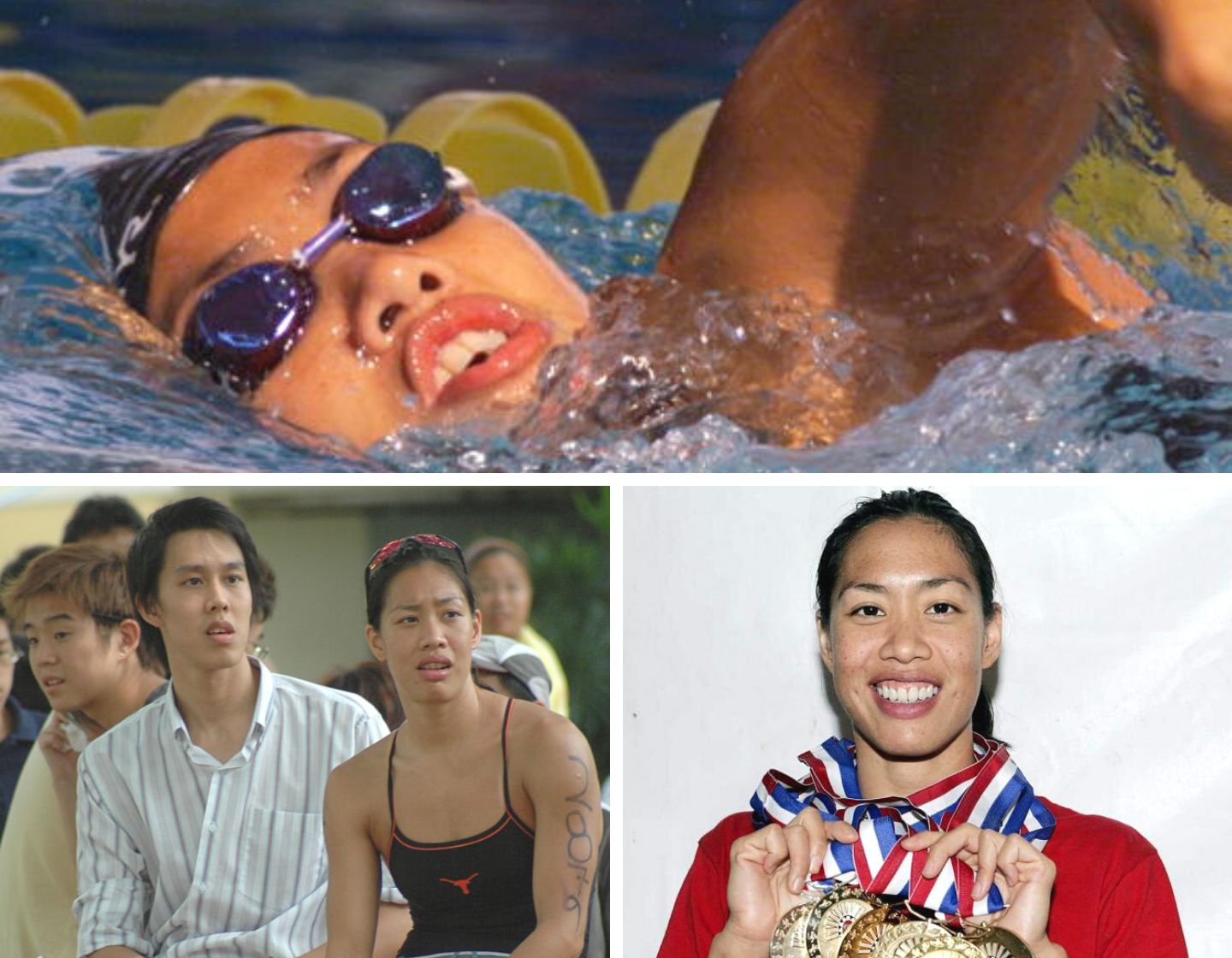
How did your swimming journey start off?
I started swimming at the age of 8. At 11, I made my first national team, and at 13, I made my first Olympic Games. My swimming career spanned 17 years, and in that time, I went to 4 Olympic Games, won 40 gold medals at the SEA Games, and was part of a relay that broke the world record in the 4 x 100m medley relay.
What made you stick to the 4:30am wake-ups and the gruelling swim training schedule?
Honestly, these early morning training sessions were not easy as I am not a morning person at all. However, I accepted that part of choosing to be an athlete was also choosing this lifestyle; a lifestyle of waking early, eating healthy, constant aching muscles kind of lifestyle. So even though I never got used to waking early, I would do it as it was necessary to get to where I wanted to go.
Once you started getting recognition for your swimming talents did you find it a burden to live up to expectations representing SG on the world stage? How did you cope (or not cope)?
I’m quite the introvert, and it was really tough for me getting so much media attention. That in itself was hard, not to mention the pressure of performing. I used to (literally) run from the media and not talk to them as it was very scary for me. What made it harder was when they would print negative articles about me; not only about me not performing up to expectations when I had a bad swim or a bad meet, but also about running away from them. It was very hard for me to deal with.
I fell into depression from that stress, began cutting myself to numb the pain and took drugs to escape reality.
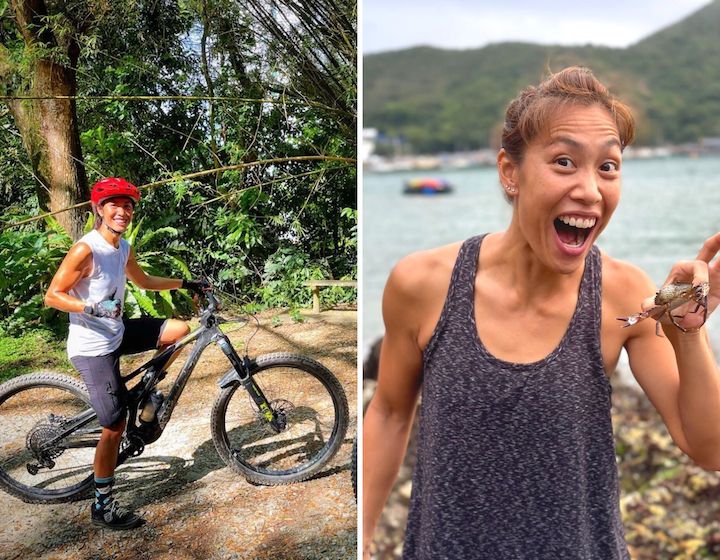
What advice would you have for your younger self?
To know that my parents did their best in raising me; there is no handbook when it comes to parenting as each kid is different from the other. They are also human, they are also figuring this parenting thing out. So be patient with them and forgive them when they make mistakes.
If a child wants to pursue a sport competitively – how much of the journey is down to their own talents vs dedication to training vs support (and even pressure) from parents to keep at it?
Sport can be done at many different levels. But if you want to do it at an elite and competitive level, talent can only take you so far. Parents pushing you can only take you so far. The level of commitment to be truly competitive at that level of intensity has to be fuelled from a fire within. Taking ownership of your sport allows you to dictate how far you can or want to go.
That said, I really also believe that a support network is important. There are days that you just don’t feel like getting out of bed for practice. There can be phases that you feel unmotivated or depressed that you are putting in so much effort and not getting the result you want. A support network is important to help us through those tough phases.
Have you encouraged your kids to take up a sport or skill competitively?
I do believe that organised sport is helpful for children. I also believe that free play is important for children. They each encourage different aspects of development in a child. My two older boys play soccer competitively. The second one also plays badminton in school on top of soccer. My third son does parkour and rugby and my daughter does gymnastics.
For enjoyment, they also mountain bike, skateboard, rollerblade, play frisbee, hike, swim and cycle.
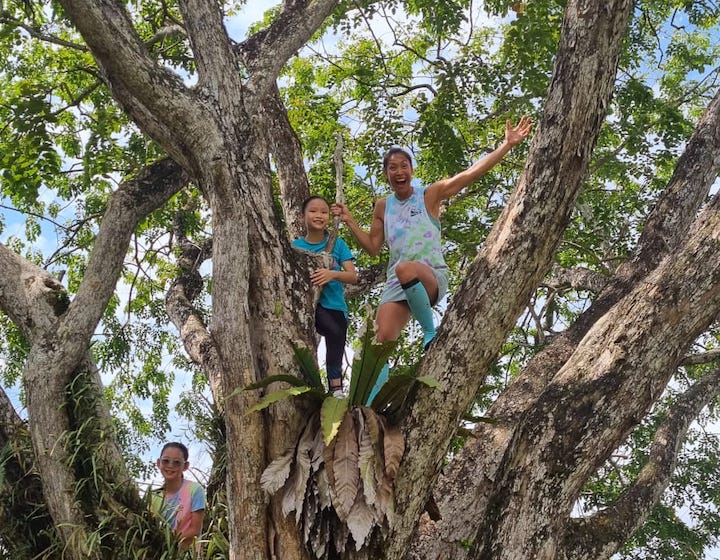
What is your parenting approach?
As a parent, I feel that I do need to give my kids opportunities to discover who they are, what their strengths and weaknesses are and what is out there in this world. If they are interested in something, I will allow, encourage and support them in discovering that. If they want to take it further than just being curious about it and experimenting with it, then I ask that they be committed to it for a certain amount of time to see if they then want to pursue it further. And if they do, if they make that choice, they need to agree with the commitment that comes with it and make it work.
For example, if my son chooses to play soccer and his soccer practice is three times a week, I can support that, given that going to soccer practice means that he needs to finish his school work in the different pockets of time that he has throughout the week, without me needing to chase him about it 24/7. If he wants to do it, he has to be committed. Not just me.
I’m also for the attitude that when they do something, they should give it their best effort and not do it halfheartedly. It’s not about them being successful at it, but rather the attitude they take towards it that I’m all about. I believe in encouragement and love in nurturing my children. Even when I need to correct them, I’m correcting them out of love and not anger or frustration.
You mentioned that you feel growing up in SG is like being in a bubble – how do you encourage your kids to go outside their comfort zone and learn independence?
I feel that life in Singapore can be very comfortable. I do believe that I need to help to push them beyond their comfort zone, otherwise on their own, they won’t necessarily choose that. But as they do, I am there with them and for them. I’m also fully engaged so that I know when enough is enough and when we need to pull back. I find that sports is a great way to push them beyond their comfort zone.
One of the sports I got my kids involved in was mountain biking. From videos, it looks intimidating, but we took lessons and they learnt it step by step. They then learnt to apply it on the trails; first on simpler trails, and then as they progressed, they’d tackle more technical or challenging obstacles. It was physically demanding, but more than that, it was mentally challenging. The ability to overcome something they didn’t think was possible. The ability to overcome fears. Being able to break down a challenge and take it a step at a time without letting it overwhelm you. These are all things they learnt that they apply in many areas of their life today.
I’ve been teaching my kids independence from a young age. I didn’t have much help when the kids were younger, and I think that really helped my kids learn to be independent. They had chores such as walking the dog downstairs, making coffee for the adults, doing dishes, keeping their toys. They also learnt to look after one another; whether it be showering, getting me a new diaper, putting on socks and shoes, getting dressed for the day and even helping me carry groceries from the car.
I was even approached by a network to have my third son participate in a show called “Old Enough”. In this show, I tasked him to go across the street to a mall to help me buy food for our dog, and also a drink for my sore throat. Of course, he was secretly followed by the crew, but he was totally capable of crossing the street safely, finding the building, taking the escalator safely up to the correct floor, finding the pet shop, paying for and buying the right food, taking the escalator down to the basement where the drink shop was, buying me a drink with the change he got from the pet shop, back up to the ground floor and then back across the street to where I was. All at the age of 4!
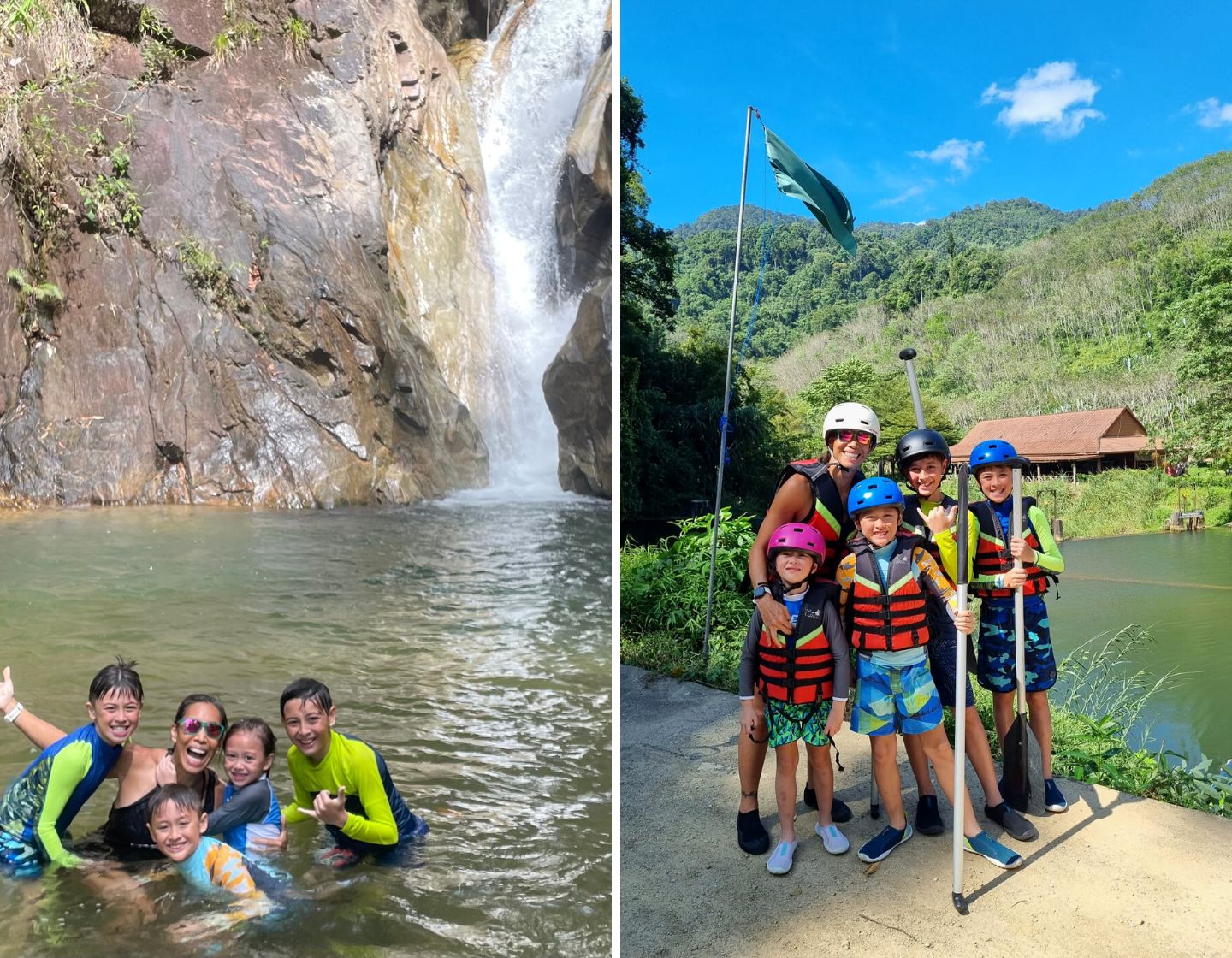
How do you navigate parenting four kids – both in terms of giving each individual attention and their different needs and academics?
I try not to get overwhelmed by the amount of stuff to do by just taking it one day at a time, one activity at a time, one child at a time. I recognise that each child is different, has different needs, responds to different ways of communication, and has different likes, wants and needs. Where I can, I empower them to take charge of their own lives, and where they need me to be involved, I am there 100% to guide them. I feel that a big part of being able to do this also stems from first having time for myself so that I am ready for them when they need me. I also learnt to receive help, especially when it came to logistical help, to manage their schedules or with meals.
What are your thoughts on PSLE – the prep and managing the stress?
The best thing that I can do for my son who is in his PSLE year this year, is to let him know that I love him no matter what his grades are. Whatever support he needs, I will provide. Be it tuition, work-life balance, unwavering love, I’m there. The only thing I expect of him is that he tries his best; not just on exam day, but that means that he has the right attitude towards preparing for his exams too.
How do you deal with your kids getting bad grades if they ever do?
My thoughts on bad grades are… so what? I don’t believe that it will determine his success in life. I don’t believe that it is necessary to get him ahead in life. Grades are an assessment of how well he’s learnt something. It does not define him. It is not his identity. There’s so much more to life than just PSLE grades.
How do you teach your kids good habits, characteristics like resilience and responsibilities?
Good habits are inculcated at home and preferably from young. They can be things like putting away their dishes once they’re done with their meal, or putting their dirty laundry in the laundry basket and not just to be left on the floor.
With responsibilities, it starts small. For example, if we’re going out, I get them to pack their own bags. If they forget to bring something, I’m not turning around to get it. If they have homework to do, they need to pack it back into their bags once they’re done. If they forget to bring it to school, I’m not bringing it for them during recess time. They face that consequence on their own. As they get older, the responsibilities can grow to chores, or helping to look after our pet dog.
Resilience is something I feel only happens as they are pushed out of their comfort zone. If things are comfortable, I find it very hard to test and build that strength from within. A lot of times, I use sports as a means to build resilience.
What do you like to do as a family to bond?
We love playing in the pool, cycling, rollerblading, soccer, going to trampoline parks together, getting to picnic spots, going out on adventures such as geocaching, finding new trails, and even the occasional outing to Timezone!
What is your self-care routine?
Going to the gym and mountain biking on a consistent basis. I also enjoy dirt biking and the occasional adventure getaway when I can.
Quickfire questions:
I wish I had more time for… sleep!!!
I always feel saner after… going to the gym
As a mama I wish I were better at… cooking
I wake up in the middle of the night thinking about… what I need to do the next day
My favourite moment of the day is… when I can wake up late and snuggle with all my kids in bed.
Thank you so much for sharing your personal story and parenting journey with us Joscelin – we really appreciate your openness!
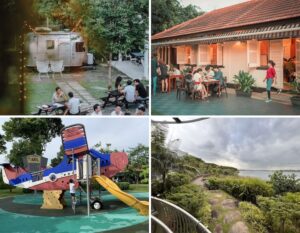


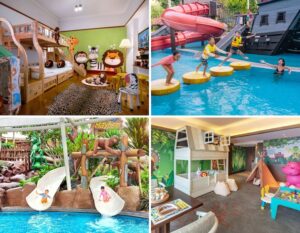

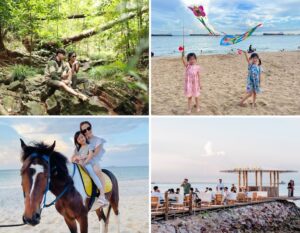
 View All
View All
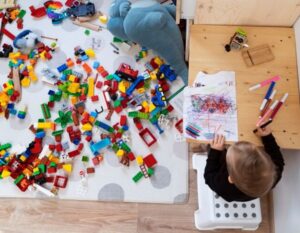


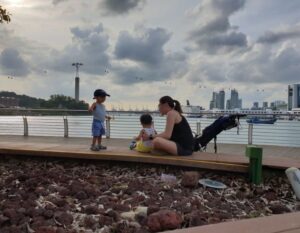
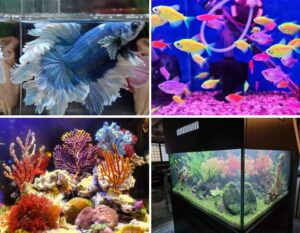
 View All
View All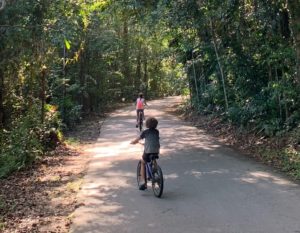









 View All
View All

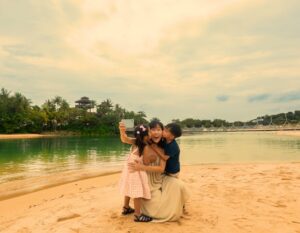
![[𝗦𝗔𝗩𝗘 𝗧𝗛𝗜𝗦] 𝗙𝗿𝗲𝗲 𝗔𝗰𝘁𝗶𝘃𝗶𝘁𝘆 𝗙𝗼𝗿 𝗞𝗶𝗱𝘀 𝗪𝗵𝗼 𝗟𝗢𝗩𝗘 𝗙𝗶𝗿𝗲𝘁𝗿𝘂𝗰𝗸𝘀! 🚒🔥
Skip the usual mall stroll and check out the Civil Defence Heritage Gallery! It’s free, air-conditioned, and housed in Singapore’s very first fire station, just across from Funan Mall.
Spanning two full floors, the gallery dives into Singapore’s firefighting history, major rescue missions, and the evolution of the SCDF. There are interactive exhibits, immersive displays, and even emergency preparedness tips for the public.
Bonus: Selected fire stations also host Saturday morning open houses with guided tours where you can watch fire gear demos, meet firefighters, and see those high-pressure water sprays in action!
𝗛𝗼𝘄 𝗺𝘂𝗰𝗵? FREE
𝗪𝗵𝗲𝗿𝗲? 62 Hill St, Singapore 179367
𝗢𝗽𝗲𝗻𝗶𝗻𝗴 𝗵𝗼𝘂𝗿𝘀? 10 am–5 pm (Closed on Mondays)
Comment “Fire” or link in bio for more details!
Tag your parent crew and plan your next adventure with the little ones! 👨👩👧👦💥
.
.
.
.
.
.
.
#SGFireStation #SCDFGallery #ThingsToDoWithKidsSG #FreeFamilyFun #SGParents #KidFriendlySG #FiretruckLovers #MuseumAdventure #SCDF #HeritageGallery #SGMums #FamilyWeekendSG #LearningThroughPlay #SingaporeWithKids](https://www.sassymamasg.com/wp-content/plugins/instagram-feed/img/placeholder.png)
